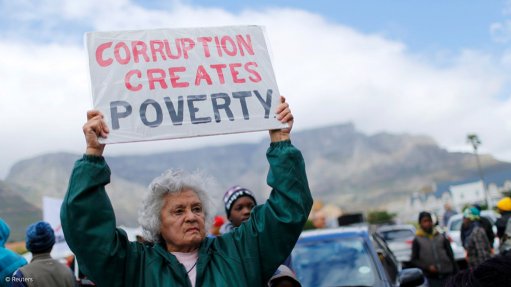Malawiʼs tone-deaf President
Last week I wrote about the latest African craze of exporting skilled citizens to other countries on the continent or abroad as a way of tackling unemployment, especially among the youth. While the continental average joblessness rate is estimated at a tame 7.11%, some countries – such as Djibouti, eSwatini and South Africa – are labouring under rates in the upper twenties or mid-thirties.
Countries whose citizens are already working in foreign lands under government-to- government arrangements include Ghana and Zimbabwe, with Kenya actively pursuing deals that will see the East African nation dispatch about 200 000 of its sons and daughters to Europe and other places.
The latest African country to hop on this bandwagon is Malawi. It announced on November 24 that more than 200 young Malawians would shortly leave for Israel, where they would be employed on what were described as high-tech farms. A chance of a lifetime, one may say, considering that just above half the population lives below the poverty line. Citing anonymous sources, local newspapers reported that the beneficiary tally could eventually be as high as 10 000, each earning a cool $1 500 a month, compared with the official minimum wage of 50 000 kwacha, equivalent to about R600.
But the timing should jar with the sensibilities of the vast majority of people. Since early October, the Israeli army has killed upwards of 15 000 mostly civilians in the Gaza Strip in retaliation against the killing, by Hamas, the militant Palestinian group, of 1 200 Israelis, most of whom were young revellers at a music festival, with the other casualties being kibbutzim residents. Hostages were also taken in the attacks. The Israeli government agreed to a truce late last month but has vowed to continue with its military campaign to ‘eliminate’ Hamas, despite an intensifying international outcry over the number of civilians killed. Yet Malawi’s President, Lazarus Chakwera, sees nothing wrong with sending his young, jobless compatriots into such a volatile and potentially deadly situation.
The backstory to the sudden need to employ Malawian farmhands in Israel is this: Thailand had 30 000 of its nationals working on those farms, but 7 000 have been evacuated back home, following the reported abduction of 24 of their number by Hamas. Other nations have taken a similar course of action, and the Israeli farms are now in need of 20 000 workers.
Within Malawi, the farmhand-export deal has been heavily criticised, with the Malawi24 website lamenting the security risk inherent in Israel. Claiming to have had sight of the terms that the workers had to agree to, it reported: “To highlight the dangers of working in Israel, the Malawians have signed a contract stating that they understand that the war will last a long time and that thousands of missiles targeting civilians are being shot into Israel.”
Perhaps the prospect of remittances from the farm workers, plus a $60-million aid package that was granted by Israel only weeks before the world got to know that 221 young Malawians were bound for Israel, was too tempting for Chakwera. But the optics simply don’t look good.
It has now come to light that, last year, Malawi cobbled together something called the Labour Export Programme and Harmonised Labour Export Guidelines. So, this might not be the last time we read about Malawians being sent by their government to faraway climes to sell their labour.
Chakwera, a cleric who came to office in 2020 on a wave of popular goodwill and high expectations – after the country’s High Court had courageously annulled the fraudulent re-election of his predecessor, Peter Mutharika – has become a caricature of his former esteemed self. This is the fellow who, in July 2021, flew all the way to London to attend a virtual conference chaired from the British capital, reportedly because of poor Internet connectivity in his country. He has also come under fire for nepotism, following the employment of his daughter and her husband at the Malawi high commission in London.
The Malawi President has also performed dismally in the fight against corruption, which, some say, has reached crisis proportions.
Article Enquiry
Email Article
Save Article
Feedback
To advertise email advertising@creamermedia.co.za or click here
Comments
Press Office
Announcements
What's On
Subscribe to improve your user experience...
Option 1 (equivalent of R125 a month):
Receive a weekly copy of Creamer Media's Engineering News & Mining Weekly magazine
(print copy for those in South Africa and e-magazine for those outside of South Africa)
Receive daily email newsletters
Access to full search results
Access archive of magazine back copies
Access to Projects in Progress
Access to ONE Research Report of your choice in PDF format
Option 2 (equivalent of R375 a month):
All benefits from Option 1
PLUS
Access to Creamer Media's Research Channel Africa for ALL Research Reports, in PDF format, on various industrial and mining sectors
including Electricity; Water; Energy Transition; Hydrogen; Roads, Rail and Ports; Coal; Gold; Platinum; Battery Metals; etc.
Already a subscriber?
Forgotten your password?
Receive weekly copy of Creamer Media's Engineering News & Mining Weekly magazine (print copy for those in South Africa and e-magazine for those outside of South Africa)
➕
Recieve daily email newsletters
➕
Access to full search results
➕
Access archive of magazine back copies
➕
Access to Projects in Progress
➕
Access to ONE Research Report of your choice in PDF format
RESEARCH CHANNEL AFRICA
R4500 (equivalent of R375 a month)
SUBSCRIBEAll benefits from Option 1
➕
Access to Creamer Media's Research Channel Africa for ALL Research Reports on various industrial and mining sectors, in PDF format, including on:
Electricity
➕
Water
➕
Energy Transition
➕
Hydrogen
➕
Roads, Rail and Ports
➕
Coal
➕
Gold
➕
Platinum
➕
Battery Metals
➕
etc.
Receive all benefits from Option 1 or Option 2 delivered to numerous people at your company
➕
Multiple User names and Passwords for simultaneous log-ins
➕
Intranet integration access to all in your organisation


















